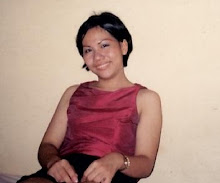Facts:
Kuroda, formerly a Lieutenant-General of the Japanese Imperial Army and Commanding General of the Japanese Imperial Forces in the Philippines during a period covering 1943 and 1944, who is now charged before a Military Commission convened by the Chief of Staff of the Armed Forces of the Philippines, with having unlawfully disregarded and failed “to discharge his duties as such commander to control the operations of members of his command, permitting them to commit brutal atrocities and other high crimes against noncombatant civilians and prisoners of the Imperial Japanese Forces, in violation of the laws and customs of war”-comes before this court seeking to establish the illegality of Executive Order No. 68 of the President of the Philippines; to enjoin and prohibit respondents Melville S. Hussey and Robert Port, American attorneys from participating in the prosecution of petitioner’s case before the Military Commission; and to permanently prohibit respondents from proceeding with the case of petitioner.
Issues:
1. Does Executive Order No. 68 illegal on the ground that it violates not only the provisions of our constitutional but also our local laws, to say nothing of the fact the on Rules and Regulations covering Land Warfare and, therefore, petitioner is charged of crimes not based on law, national and international?
2. Whether or not the two American Attorneys qualified to practice law in the Philippines and the appointment of the two attorneys as prosecutors is violative of our national sovereignty?
3. Whether or not the respondent Military Commission has jurisdiction over the petitioner for acts committed in violation of the Hugue Convention and the Geneva Convention because the Philippines is not a signatory to the first and signed the second only in 1947?
Rulings:
1. Executive Order No. 68 which was issued by the President of the Philippines is valid and constitutional. Article 2 of our Constitution provided in its section 3 that “ The Philippines renounces war as an instrument of national policy, and adopts the generally accepted principles of international law as part of the la of the nation.
2. Respondent Military Commission is a special military tribunal governed by special law and not by the Rules of Court which govern ordinary civil courts. It has already been shown that Executive Order No. 68 which provides for the organization of such Military Commission is a valid and a constitutional law. There’s nothing in said executive order which requires that counsel appearing before said commission must be attorneys qualified to practice law in the Philippines in accordance with the Rules of Court. In fact, it is common in military tribunals that counsel for the parties are usually military personnel who are neither attorneys nor even possessed of legal training. Secondly, the appointment of the two attorneys are not violative of our national sovereignty. It is only fair and proper that the United States, which has submitted the vindication of crimes against her government and her people to a tribunal of our nation, should be allowed representation in the trial of those very crimes.
3. It cannot be denied that the rules and regulations of the Hague and Geneva conventions form part of and are wholly based on the generally accepted principles of international law. In fact, these riles and principles were accepted by the two belligerent nations, the United States and Japan, who are signatories to the two conventions. Such rules and principles, therefore, form part of the law of our nation even if the Philippines were not signatory to the conventions embodying them, for our Constitution has been deliberately general and extensive in its scope and is not confined to the recognition of rules and principles of international law as contained in treaties to which our government may have been or shall be a signatory.
Subscribe to:
Post Comments (Atom)

No comments:
Post a Comment